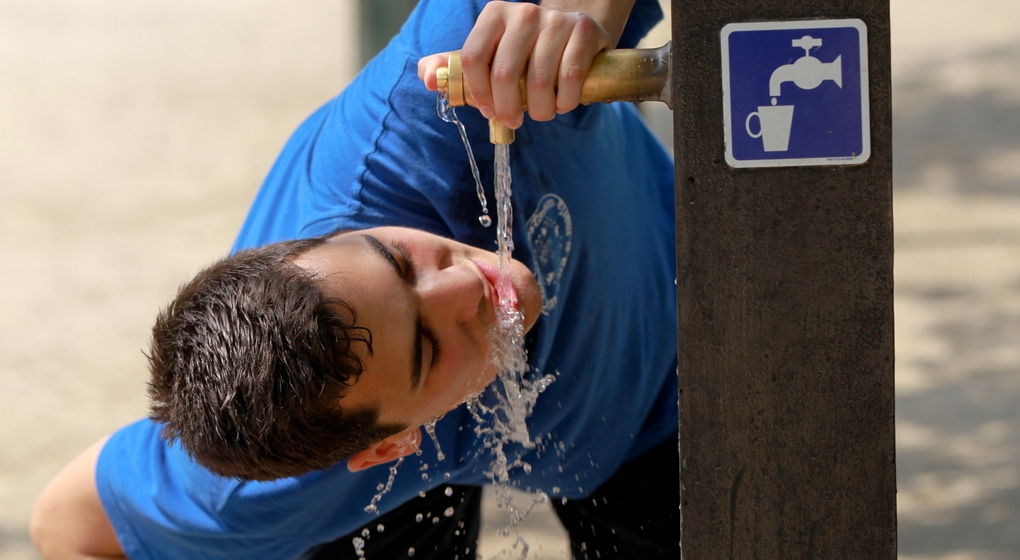As part of a series of measures to make water more accessible to its residents, the Brussels-Capital Region is installing seven extra drinking water fountains in Brussels' parks and green spaces, on top of the 35 existing ones, before the summer.
Like every year, Brussels is reactivating its public fountains on 15 April (tomorrow). But this year, the Region is also focusing on installing more drinking water fountains – and freed up a budget of €100,000 to install and maintain them.
"Access to drinking water is essential in a city. By giving everyone the opportunity to drink and refresh themselves free of charge, we promote health, support sport and the time spent alone or with the family in public spaces," said Brussels Environment Minister Alain Maron.
Network of drinking fountains
In addition to the 35 already existing fountains, Brussels Environment will install seven drinking water fountains in the green spaces managed by the Capital Region by the summer:
- in the Colonial Garden in Laeken (already operational and connected since 2 March),
- in the Sobieski Garden in Laeken (connected on 17 March, but is not yet operational),
- in the Vogelzang park in Anderlecht,
- in Duden Park in Forest,
- two fountains on the route of the walk along the Woluwe main road in Woluwe-Saint-Lambert,
- at the metro exit at the bottom of Parc de la Porte de Hal in Brussels City.
"I am proud that this network of drinking fountains will make our region both more pleasant and more resistant to heat waves," Maron added.
Related News
- Water scarcity: Dry March highlights fragility of Flemish groundwater levels
- More than 5 billion with limited access to water by 2050
- Water scarcity as floods rage: Belgium's climate change contradiction
There are also four fountains in Brussels that remain operational throughout the year: the Pol Bury fountain on the Boulevard Albert II, 'The Bean' on Simonis Square, the monumental fountain on Montgomery Roundabout and the fountain on Place Stéphanie.
"Water plays an essential role in our region as a climate regulator, as a place to walk by and recharge, as a recreational space," said Brussels Minister for Mobility and Public Works Elke Van den Brandt.
"Promoting water through aesthetic and recreational fountains means creating pleasant places where all generations can meet," she added. "Creating a free and accessible drinking water network means improving the health of all inhabitants of Brussels, especially the most vulnerable."
Translation: "Whether decorative or recreational public fountains or drinking water taps, water makes our Region more friendly, healthy and resilient to heatwaves. Bravo, Alain Maron, for expanding the Brussels drinking water network."
In November 2021, the public fountains were deactivated, followed by winter maintenance. In autumn and winter, they received a light cleaning.

